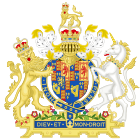Poor Relief Act 1691 facts for kids
| Act of Parliament | |

|
|
| Long title | An Act for the better explanation and supplying the defects of the former laws for the settlement of the poor. |
|---|---|
| Citation | 3 Will. & Mar. c. 11 |
| Dates | |
| Royal assent | 24 February 1692 |
| Other legislation | |
| Repealed by | Poor Law Act 1927 |
|
Status: Repealed
|
|
| Text of statute as originally enacted | |
The Poor Relief Act 1691 was a law passed by the Parliament of England. It aimed to improve and clarify older laws about helping people who were poor. This Act was important because it tried to make sure that local areas, called parishes, took care of their own needy residents.
Contents
What Was the Poor Relief Act 1691?
Back in the 1600s, there were laws in England to help people who couldn't support themselves. These were known as the English Poor Laws. However, these laws sometimes caused problems. People who were poor might move from one parish to another, hoping to get help. This made it hard for parishes to know who they were responsible for.
The Poor Relief Act of 1691 was created to fix some of these issues. Its main goal was to make clearer rules about where a person belonged, or their "settlement." This way, each parish would know exactly which poor people it needed to support.
Understanding Poor Relief
"Poor relief" was the system of support for people in need. This could include food, shelter, or money. It was usually provided by the local parish. The money for this help came from taxes collected from people living in that parish.
Why Was "Settlement" Important?
The idea of "settlement" was key to the Poor Laws. It meant the place where a person had a legal right to live and receive poor relief. If someone moved to a new parish, they might not be able to get help there unless they could prove their settlement.
The 1691 Act tried to prevent people from moving around just to find better relief. It also aimed to stop parishes from trying to avoid helping their own poor.
How Settlement Was Gained
Under this Act, a person could gain settlement in a parish in several ways. For example, if you were born in a parish, you usually had settlement there. Working as an apprentice for a certain time could also give you settlement. Even an attorney's clerk, who was learning the law, could gain settlement in the parish where they worked. This meant that parish was responsible for them if they ever needed help.
The Act's End
The Poor Relief Act 1691 was eventually removed from law. The entire Act was officially cancelled by the Poor Law Act 1927. This happened many years later, as new laws were created to manage how poor people were supported in England.
 | Anna J. Cooper |
 | Mary McLeod Bethune |
 | Lillie Mae Bradford |

